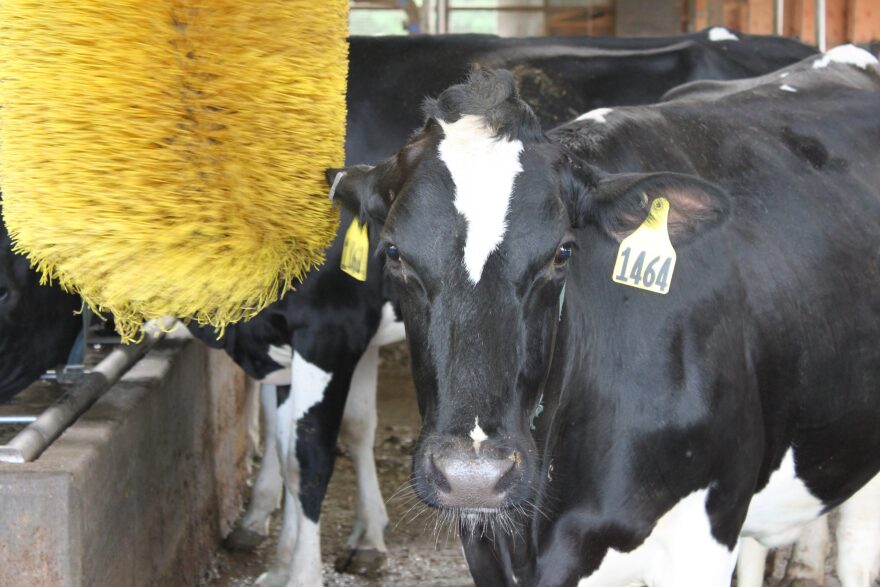CHERRY HILL, NJ (WSKG) - New York dairy farmers are being asked to dump tens of millions of pounds of milk. The dumping is one symptom of the massive disruption the coronavirus pandemic has brought upon national food systems.
Winsor Acres, near Harpursville, produces 21,000 gallons of milk every day. Over the last few weeks, the farm has been forced to dump a third of each day's output.
"Right now, we are dumping on average one trailer load a day," said owner Glenn Winsor.
Winsor has worked on the family-run farm for over three decades. Last month, Dairy Farmers of America, the dairy cooperative that markets his farm's milk, asked Winsor to dump his product for the first time.
Winsor isn't alone. Dairy Farmers of America estimates that farmers nationwide are dumping nearly four million gallons of milk each day.
The novel coronavirus has thrown a wrench in the dairy industry. Nearly half of all butter and cheese produced is consumed through restaurants and other food-service institutions. Now that many restaurants, coffee shops and school cafeterias are closed, much of that customer base has disappeared.
"About half of the milk goes to those large consumers every day, and all of a sudden that market literally went away overnight," said Steve Ammerman, manager of public affairs for the New York Farm Bureau.
The price of milk has dropped as farmers continue to produce more milk than there is demand for it. In 2019, the price of milk reached its highest number in five years. Dairy farmers hoped that momentum would carry into 2020, but Ammerman said the price of milk dropped so low last month that farmers like Winsor might not break even this year.
"It's really forcing our farmers to do business in very different ways," Ammerman said.
Though demand for fluid milk in grocery stores is up now that consumers are staying home, players in the dairy industry were not equipped for the abrupt shift. Changing production from food service customers to retail requires adjustments in volume, packaging and scheduling. Switching over a processing plant from producing cheese in bulk quantities to smaller, grocery-ready packages requires time many businesses don't have.
Three of the cheese processors Winsor Acres sells to are now closed due to the market upheaval. Other customers just don't have the space to store his raw milk before it spoils.
"[Processors] only have limited storage capacity for a perishable product," Ammerman said. "Sometimes the only alternative, if there's nowhere for that milk to go, is to dispose of it on the farm."
According to Andrew Novakovic, professor of economics at Cornell University, the dairy industry is robust enough to bounce back once public life reopens. Once restaurants reopen, demand will be restored, he said. The price of milk will increase and dairy farmers will no longer have to resort to dumping.
Still, Winsor said he’ll feel these losses for years to come. With 1,800 cows and 32 full-time employees on the payroll, he still has to make ends meet for those who rely on the farm for a living.
"Ultimately at the end of the day, when money gets short the owners live on less," Winsor said.


